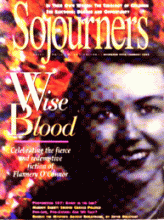It is fitting that this morning, after paying bills and moaning about another increase in our health insurance premium, I came across a Russian proverb in a nutrition magazine: "Drink a glass of wine after your soup and you steal a ruble from the doctor."
The first hard data supporting the benefits of a glass of wine a day came in 1974 when researchers at Kaiser Permanente in California found that teetotalers suffer more heart attacks than drinkers. Critics questioned the validity of the data because ex-drinkers and non-drinkers were put in the same category. So in 1977 another study excluded former drinkers.
Rather than invalidating the California conclusion, the Honolulu Heart Program Study showed that, indeed, lifetime abstainers had more than twice as many cases of cardiovascular diseases as people who drank moderately. Likewise, two Harvard studies showed moderate drinkers having less heart disease than either abstainers or heavy drinkers.
How? A striking correlation exists between moderate drinking and higher HDL cholesterol ("good" cholesterol) levels. Drinking with meals, particularly, seems to prevent fatty platelets from forming in the blood. Ethanol is the key, whether in the form of beer, wine, or spirits.
When the news program 60 Minutes presented the "French Paradox" to American viewers in 1991, crediting wine drinking as the reason French people have half the heart disease Americans do despite eating more butter and cheese, U.S. wine sales increased by 44 percent. It seems we were waiting for nutritional permission to do what many of us do anyway-lift our glasses of fruit-from-the-vine to the health and cheer of everyday life. (Many of us also were delighted to continue eating butter with a clear conscience.)
Read the Full Article
